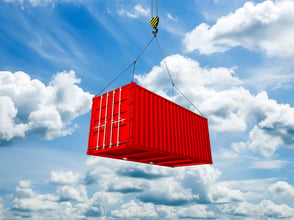The “cloud” refers to applications that run on the internet, instead of on a local computer or piece of equipment. Essentially, when something is running on the cloud it is stored on a remote server (usually multiple copies at multiple locations, actually).

Data hosting is available on demand. Most cloud-based information can be accessed in any web browser or through a mobile app. As a result, anyone with permission can access it without having to physically be at the place where it was originally stored. Cloud-based asset management software offers municipalities and contractors the ability to interact with sewer inspection data immediately from any device — making it more accessible than ever before.
When wastewater operations choose to host sewer inspection data in the cloud, they do so for a variety of reasons.
Accessibility and Collaboration
Wastewater operations rely on data from multiple sources. Different stakeholders in a wastewater operations team need to access sewer data to perform their jobs, including but not limited to civil engineers, municipal decision makers, rehabilitation contractors and equipment engineers. Physical storage devices such as USB drives and hard drives slow the process, both in processing speed and accessibility. With a cloud interface, completed inspections upload automatically to the internet, where they’re immediately available to all stakeholders on their device of choice.
In the event of a natural disaster, pandemic, or simply the office or shop being inaccessible, wastewater operators still need to do their jobs and provide safe, sanitary sewer services. Cloud-based asset management software allows work to continue on, without anyone needing to physically handle the information or access a local computer server.
Reliability and Performance

Local servers and storage devices give wastewater crews a finite amount of capacity and digital storage space. Cloud-based asset management systems draw from a larger pool of resources and servers, so they are less likely to encounter capacity constraints. Wastewater operations can simply purchase more capacity as their needs grow.
With cloud-based asset management systems, the platform is responsible for keeping the software and hardware up-to-date. And since most of the resources are shared across multiple customers, the costs and demands of keeping everything updated is shared across the board. In essence, with cloud-based asset management systems, wastewater operations can leverage the performance and reliability of a large-scale computing infrastructure without actually spending the time and money to build it.
Redundancy & Data Recovery
Asset management programs need to be able to quickly and easily access archived inspections. Protecting that inspection data against loss is crucial, as is ensuring its availability. Cloud-based asset management solutions are more reliable because data is replicated across multiple servers — ensuring maximum uptime and failure redundancy. These redundancy protocols minimize the risk of data loss due to disk crashes or server mishaps and offer a more robust solution than local backup.
Cost Savings
Municipalities have a ton of data, and video places a particularly high burden on storage capacity and transmission bandwidth. Building and maintaining the infrastructure needed to host that data securely is costly. Cloud-based asset management solutions eliminate the need to maintain software and hardware in-house. This can substantially decrease IT costs, including hardware, facilities and staff.
Request a free demo of WinCan Web and learn how cloud data can help your sewer inspection team make smarter decisions:





